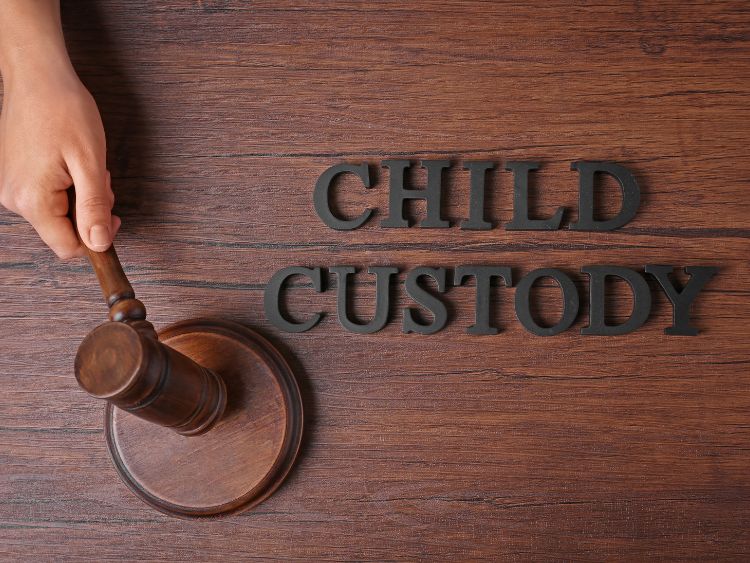In the complex world of family law, few issues strike a chord quite like “interference with child custody.” This delicate topic not only tugs at the heartstrings but also presents a labyrinth of legal challenges. In this detailed exploration, we’ll dive deep into what constitutes interference with child custody, the repercussions of such actions, and strategies for navigating these turbulent waters. So, buckle up and prepare for an insightful journey into the intricacies of safeguarding the best interests of children amidst custody disputes.
What Is Interference with Child Custody?
At its core, interference with child custody occurs when one parent deliberately disrupts the agreed-upon or court-ordered custody arrangement of a child. This disruption can take many forms, from the mild – such as slight deviations from visitation schedules – to the severe, like absconding with the child to an undisclosed location.
The Legal Ramifications
The consequences of meddling with custody agreements are no small matter. They can range from legal reprimands and modifications of custody agreements to, in extreme cases, criminal charges. The severity often hinges on the nature of the interference and the jurisdiction’s specific laws.
Strategies to Combat Interference
Fighting back against interference requires a blend of legal acumen and strategic planning. This section will outline effective tactics, including documentation, communication strategies, and when to seek legal intervention.
Understanding the Legal Landscape of Child Custody Interference
Interference with child custody doesn’t just disrupt family dynamics; it potentially violates state and federal laws. Here’s a rundown of how different jurisdictions may tackle this sensitive issue:
- Statutory Provisions: Many states have specific statutes that define and address custody interference, detailing both the actions that constitute interference and the penalties for committing them.
- Civil vs. Criminal Penalties: Depending on the jurisdiction and the severity of the interference, offenders may face civil penalties, criminal charges, or both.
- The Role of Law Enforcement: In severe cases, especially those involving abduction, law enforcement agencies play a crucial role in resolving the situation and ensuring the child’s safe return.
The Impact on Children and Families
The emotional and psychological toll of custody interference on children cannot be overstated. It often leads to confusion, distress, and long-term issues with trust and stability. For parents, the frustration and fear of losing contact with their child can be overwhelming.
Preventative Measures and Solutions
Preventing interference starts with a well-crafted custody agreement. Include clear, concise terms and consider adding provisions for conflict resolution. Regular communication and a commitment to co-parenting can also significantly reduce the risk of interference.
Legal Remedies and Resources
When interference occurs, several legal avenues are available to affected parents:
- Contempt of Court: A parent who violates a custody order may be held in contempt of court, facing fines, jail time, or both.
- Modification of Custody Orders: In some cases, a pattern of interference can lead to a modification of the existing custody agreement, potentially granting more custody rights to the non-offending parent.
- Enforcement of Custody Orders: Courts have mechanisms in place to enforce custody orders, including the involvement of law enforcement if necessary.
How to Document and Report Interference
Effective documentation is crucial. Keep detailed records of missed visits, unauthorized locations, and any direct violations of custody agreements. When reporting interference, provide this documentation to your attorney or directly to the court, depending on the situation.
FAQs on Interference with Child Custody
- What constitutes legal interference with child custody?
- How can I prove interference with child custody?
- What are the possible legal outcomes for someone found guilty of custody interference?
- Can interference with child custody affect future custody arrangements?
- Where can I find support and resources if I’m dealing with custody interference?
Each of these questions delves into common concerns, offering clarity and direction for those navigating these challenging circumstances.
Summary
Interference with child custody is a complex issue that demands careful consideration and strategic action. Whether you’re a parent facing this difficult situation or simply seeking to understand the nuances of custody law, knowledge is power. By understanding the legal framework, recognizing the signs of interference, and knowing how to respond effectively, you can protect your rights and, most importantly, safeguard the well-being of your children.
In closing, remember that while the road may be tough, resources and legal protections are in place to guide and support you through the process. Stay informed, stay prepared, and never hesitate to seek professional advice when the waters of custody disputes become murky.





